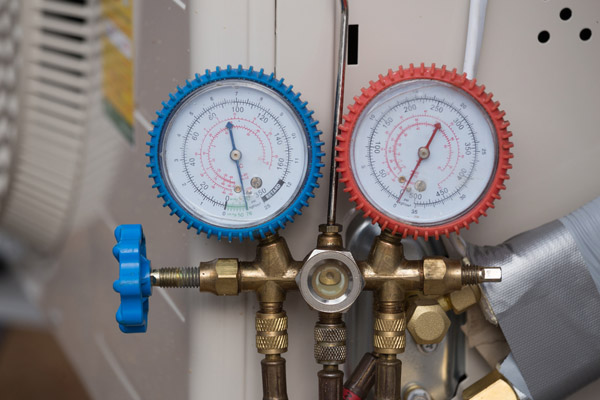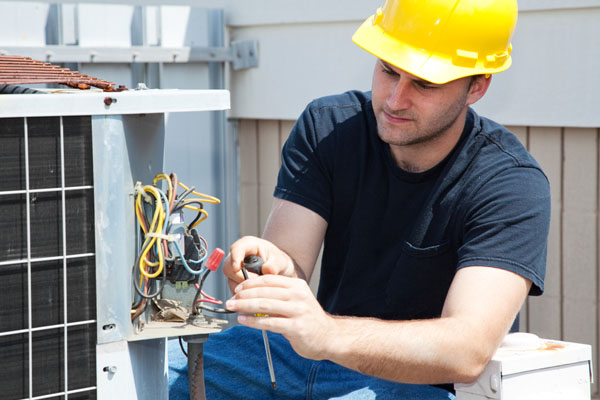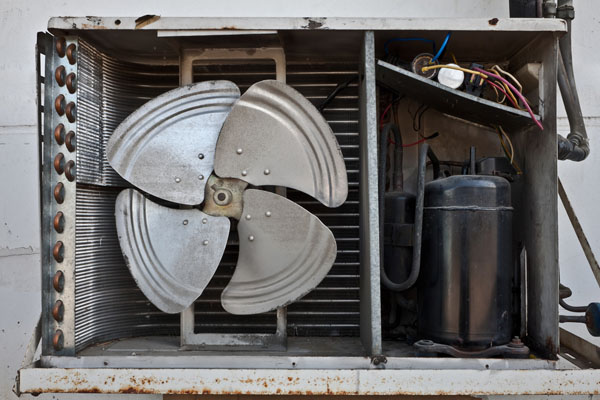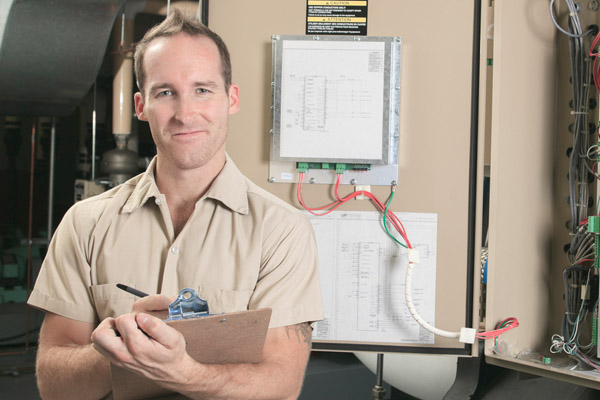How Do I Know If My Air Conditioner Has A Refrigerant Leak?

An AC refrigerant leak is not always easy to identify but it is fairly common with older air conditioning systems. It is often the main cause of an inefficient HVAC system that affects the comfort of your home. There are, however, health issues to be concerned about in case the leak is not fixed in time. Therefore, it is vital for homeowners to learn more about what an air conditioner refrigerant leak is, what causes it, and why you may have to take a closer look at your HVAC system.
How Do I Know If My Air Conditioner Has A Refrigerant Leak?
Contents
- How Do I Know If My Air Conditioner Has A Refrigerant Leak?
- Call Point Bay Fuel For Your Air Conditioning Requirements
In this article, we discuss the role that refrigerant plays. We also discuss common causes of coolant leaks and possible solutions when your air conditioner has a leak.
What Does Air Conditioner Refrigerant Do?

Air conditioner refrigerant is a type of compound that usually comes in a fluid or gas state. In air conditioning systems, the refrigerant (such as R-22) is forced by the compressor around certain components of the system. The compressor then rapidly compresses the refrigerant as the unit pulls it in, causing the molecules into a smaller space. The action of the molecules as they collide causes them to produce heat. The refrigerant then moves through the condenser which eliminates the heat. The heat removal action is also aided by fans. As the refrigerant cools down, it is condensed into liquid form. When the refrigerant passes through the evaporator, it cools down further. When air is passed through over the evaporator coils, it is cooled before it is released into a room or space.
The action of the refrigerant is critical for cooling the ambient air using an air conditioning system. If it runs low or leaks, the capability of the system to cool down a room or space is severely reduced.
What Causes An Air Conditioner To Leak Refrigerant?
Corrosion
Metal components such as copper tube walls inside the air conditioner’s indoor coil can become corroded. Holes and cracks may form in the weakened metal which can result in a refrigerant leak.
Weakened Air Conditioner Joints And Connections
Time and aging are still factors that cause joints and other connections inside the air conditioning system to erode or thin out.
Improper Air Conditioner Installation

If an HVAC contractor did not perform the air conditioning unit installation properly, certain parts and components may not fit correctly, resulting in leaks.
AC Factory Defects
If the cooling unit is defective as a result of improper assembly or handling before it reached your home, the defects could also be a reason why it has a coolant leakage.
Air Conditioner Wear And Tear

Age and regular use inevitably cause coolant to leak. Certain components of the air conditioning system are protected by rubber seals. These seals can become worn over time and allow the refrigerant to escape.
Signs To Look For When Your Air Conditioner Has A Refrigerant Leak

- Higher Electric Costs: Since the AC unit cannot cool down your home efficiently, the system will have to work harder to get the ambient air to the right temperature. As a result, you will notice a spike in your electric bill.
- AC Takes A Long Time To Cool Your Home: When there is a coolant leak, the air conditioner loses its cooling power. This will explain why it would take longer to feel comfortable after you turn on the AC.
- High Levels Of Humidity: Increased humidity is another sign that your AC system is not working properly. When refrigerant levels are low, it will take a lot longer (if at all) for the AC unit to dehumidify your home.
- Frozen Evaporator Coil: If the amount of refrigerant that circulates through the AC evaporator coils is not enough, the coil will not be able to absorb heat. As a result, condensation that forms in the coils will freeze. When this happens, you could usually see ice forming on the coils.
- AC Leak: An AC leak is usually caused by frozen condensation that has melted on the evaporator coils. The liquid will then drip and cause a puddle to form on the floor or ground.
- Hissing Sounds: A hissing sound can be heard if your AC unit has holes or cracks, particularly in the coils where the refrigerant is circulated. If the leak is larger, a gurgling sound can be heard.
- Low Airflow: When there is not enough refrigerant in the air conditioning system, it will fail to produce a sufficient amount of cool air, resulting in low airflow.
Dangers Of Air Conditioner Refrigerant Leaks

Coolant leaking through vents can be very problematic. If you are exposed to a coolant leak, you might experience symptoms such as dizziness, poor concentration, shortness of breath, and loss of coordination. You might also develop skin rashes. If the coolant came in direct contact with your skin, you might develop frostbite or a chemical burn. Inhaling high levels of coolant can also lead to seizures and loss of consciousness. In some cases, it could even be fatal.
Should I Repair Or Replace My Air Conditioner?

It may be tempting to attempt to repair your AC unit yourself or perform a DIY air conditioner replacement. However, keep in mind that any number of problems can cause a refrigerant leak that only a professional HVAC contractor should fix. If your AC unit is a newer model, for example, performing repairs on it yourself may void the warranty. It is better to call a professional.
It is also important for you to know that the most common type of coolant in older AC systems, the R-22 refrigerant, has been phased out starting January 1, 2020. Since it is no longer in production, it may still be available. However, R-22 has limited quantities and comes at very high prices. If your air conditioner is an older model that used R-22 and is no longer as efficient as it once was, it is far more practical to replace the unit than have it repaired.
Very often, the problem with older units goes far beyond just a refrigerant leak. Repairing an old, leaky, problematic AC system and its refrigerant level topped off may cost nearly as much as half of a new, ENERGY STAR® certified AC. A new AC unit with a high SEER rating can assure you of better performance, assured comfort, and improved efficiency.
Conclusion
If you have been having trouble with an AC refrigerant leak, getting an energy-efficient air conditioner may be the best option for you. While simple issues are repairable, some types of damages and defects require a more solid solution. Talk to your HVAC contractor about the options you have to optimize the comfort and safety of your home.
Call Point Bay Fuel For Your Air Conditioning Requirements

Point Bay Fuel offers superior heating and cooling services in Ocean and Monmouth Counties, New Jersey. We hire the best NATE certified technicians who can provide you with excellent HVAC tune-ups, repairs, installations, and replacements. Each of our techs has the knowledge and experience to service your HVAC system correctly.
Point Bay Fuel guarantees the most competitive heating and cooling service costs in the area. Our maintenance services can improve your comfort, increase your energy efficiency while reducing your home cooling costs. If you happen to need an HVAC repair or replacement system, we can recommend the best one for your home while staying within your budget. We back all of our work with a guarantee to ensure your satisfaction. To schedule a service appointment, give Point Bay Fuel a call today. We offer free, in-home estimates.
Contact us now by calling (732) 349-5059 to speak to one of our home comfort specialists!
